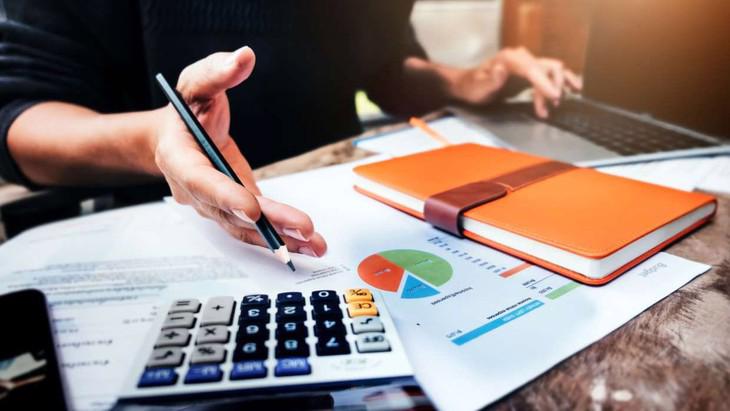Vietnam Valuation Standards on the collection and analysis of information on appraised assets
On May 16, 2024, the Minister of Finance of Vietnam issued Circular 31/2024/TT-BTC on Vietnamese Valuation Standards regarding the collection and analysis of information on appraised assets.

Vietnam Valuation Standards on the collection and analysis of information on appraised assets (Image from the internet)
Vietnam Valuation Standards on the collection and analysis of information on appraised assets
This Vietnam Valuation Standards regulate and guide the collection and analysis of information on appraised assets during the appraisal in accordance with valuation laws. Some prominent contents of the Vietnam Valuation Standards on Collecting and Analyzing Information on Appraised Assets are as follows:
(1) Sources of Information Collected on Appraised Assets
The sources of information collected on appraised assets include:
- Information provided by organizations or individuals requesting the appraisal, showing legal characteristics (such as ownership rights, usage rights, exploitation rights, management rights, and other rights related to the asset), economic-technical characteristics (including the process of usage, operation, exploitation, repair, and upgrading of the asset), and other relevant information (if any). Organizations or individuals requesting the appraisal are responsible for the accuracy and honesty of this information;
- Information from the current status survey results of the appraised assets;
- Information from experts, inspection organizations, design consultancy units, construction units, technical entities, and other individuals or organizations with knowledge and experience related to the appraised asset (if any);
- Information from the survey and collection of market information and participating entities in the market of the appraised assets;
- Information from national databases on prices, information from competent state management agencies (if any);
- Other information sources (if any).
(2) Methods of Collecting Information on Appraised Assets
The methods of collecting information on appraised assets:
- Requesting organizations or individuals demanding the appraisal to promptly provide all records and documents related to the appraised assets, including documents about the usage, operation, and exploitation process, documents on repair and upgrading (if any). Organizations or individuals requesting the appraisal confirm in writing the contents of the information they provide;
- Surveying the current status of appraised assets:
The information collector directly conducts the survey, fully recording the characteristics and current status of the asset, information, and factors significantly affecting the asset's value; taking photographs of the asset and other images to document the current state of the asset; compiling a survey report of the asset's current status. The survey report of the asset's current status must be signed by the information collector and the organization or individual requesting the appraisal.
For appraised assets that are enterprises, intangible assets, financial assets, services, or future-formed assets: the information collector surveys the current status of those assets, or components of assets, that can be directly surveyed in reality.
Cases where the survey of the asset’s current status is not necessary if the information collector provides full reasons why the asset cannot be surveyed, including:
+ The appraised asset is machinery, equipment, new tools or services where the proposal for appraisal list, label, or attached documents have full information on the economic-technical characteristics of the asset; concurrently, there are identical assets to the appraised asset being transacted and traded in the market;
+ The appraised asset is missing, lost, or completely destroyed;
+ The appraised asset cannot be directly accessed due to objective or force majeure reasons, and the information collector must state the potential impacts on the valuation activity (if any). The person conducting the appraisal is responsible for clearly stating the potential impacts on estimating the value of the appraised asset (if any) in the appraisal report and the appraisal certificate or the valuation result notice;
- Using consultation opinions from experts, organizations, or individuals providing consultancy services on inspection, design, construction, technical issues, and other services related to the appraised assets;
- Based on the characteristics of the appraised assets, the approach, and the appraisal methods issued by the Ministry of Finance, the appraiser is expected to choose, the survey and collection of market information and participating entities in the market of assets at the time of the appraisal are carried out by one of the following methods:
+ Interviewing individuals or organizations with information on ownership, usage, and transfer of assets, such as owners, users, operators, exploiters, maintainers, and repairers of assets; customers; suppliers; manufacturers; consumers, directly, by phone, or via email. The interview process and results must be documented in survey forms and stored according to regulations in this Circular;
+ Collecting information on customs declarations or contracts, invoices, sales documents, quotations, lists, reports from importers, manufacturers, suppliers, investors, and other relevant subjects;
+ Gathering information through information and communication channels, such as books, newspapers, magazines, publications, articles, reviews from scientific research organizations, industry associations, experts, evaluation, and rating organizations domestically and internationally; on the internet; electronic portals; radio and television stations;
- Collecting information through national databases on prices, information from documents of competent state agencies, including price levels regulated by competent state agencies; unit prices, specialized norms related to appraised assets; economic, social, environmental data, planning, and other contents impacting the value of the appraised asset as published or regulated by competent state agencies (if any);
- Using other methods of collecting information as regulated.
- Cases of land rent exemption and reduction under the latest regulations in Vietnam
- Economic infrastructure and social infrastructure system in Thu Duc City, Ho Chi Minh City
- Regulations on ordination with foreign elements in religious organizations in Vietnam
- Increase land compensation prices in Vietnam from January 1, 2026
- Determination of land compensation levels for damage during land requisition process in Vietnam
- Who is permitted to purchase social housing according to latest regulations in Vietnam?
-

- Number of deputy directors of departments in Vietnam ...
- 15:04, 05/03/2025
-

- Cases ineligible for pardon in Vietnam in 2025
- 14:43, 05/03/2025
-

- Decree 50/2025 amending Decree 151/2017 on the ...
- 12:00, 05/03/2025
-

- Circular 07/2025 amending Circular 02/2022 on ...
- 11:30, 05/03/2025
-

- Adjustment to the organizational structure of ...
- 10:34, 05/03/2025
-

- Notable new policies of Vietnam effective as of ...
- 16:26, 11/04/2025
-
.Medium.png)
- Notable documents of Vietnam in the previous week ...
- 16:21, 11/04/2025
-
.Medium.png)
- Notable documents of Vietnam in the previous week ...
- 16:11, 02/04/2025
-
.Medium.png)
- Notable new policies of Vietnam to be effective ...
- 16:04, 02/04/2025
-
.Medium.png)
- Notable new policies of Vietnam effective from ...
- 14:51, 21/03/2025

 Article table of contents
Article table of contents
